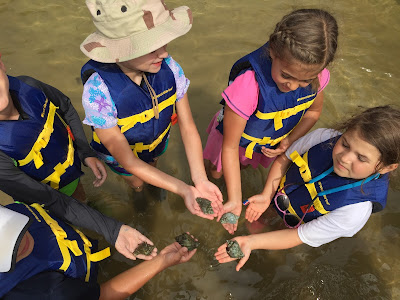Without knowing much about it, I used to think of homeschooling as backwards and a little antisocial. I thought it was something only "kooky" people do. Now, as a parent, I understand why families may choose to educate their children at home.
The number of those choosing to educate their children at home is growing. In 2007, there were 1.5 million kindergarten through grade twelve home-educated students. In 2011, that number rose to almost 1.8 million. One estimate of homeschoolers in 2013 found 2.2 million home-educated students.
 |
| "Homeschool Days at Zoar Village" by Chiot's Run |
Why are more parents choosing to homeschool? A U.S. Department of Education survey of homeschool parents found that
- 91 percent are concerned about school environments;
- 77 percent want to provide a moral education;
- 74 percent are dissatisfied with schools' academic instruction;
- 64 percent want to provide religious instruction; and
- 44 percent want a non-traditional approach to education.
 |
| "Crowned Conchs" by FWC Fish and Wildlife Institute |
My husband (who has an Ed.D. and works in education) and I discussed many of these reasons while deciding how to educate our three-year-old child. I now homeschool my son during the week, and take him to a language school on Saturdays. I love our time together, and would not change it for the world. He seems happy, smart, and is developing on pace with, or ahead of, developmental milestones for his age. That said, my husband and I will likely enroll our son in a preschool next year. We view these early years as time to experiment and learn what works best for our family in the years to come.
With homeschooling, I enjoy the freedom to decide when, how, and what to teach my son. I am constantly amazed and amused to see the world through his eyes. I feel privileged to spend this time with him. We grow our bond as we learn and create new memories together.
 |
| "Homeschool Fun" by Chiot' Run |
Wondering if homeschooling is for you? Check to see if the questions at the beginning of this post apply to you. In addition, here are a few more:
- Is your child missing something in his or her current education that you think is important ? (Example: particular philosophy, morality, religious point of view, unconventional lesson)
- Does your child have special needs, physical or mental issues that are better addressed at home?
- Is your child being bullied or experiencing unhealthy peer pressure at his or her current school?
- Is your child's school is unsafe? (Example: security issues, drugs)
- Do the instructors at your child's school treat him or her fairly?
- Is your child making adequate progress in his or her current learning environment?
- Is your child being adequately challenged? If not, would he or she benefit from a more customized education?
- Do you want your child to have more one-on-one instruction?
- Can you afford to send your child to the school of your choice? If not, are you happy with the available alternatives?
- Do you want more opportunities to bond with your child?
Your family will probably have additional, unique considerations to think about, that make sense for you. Advocates for Home Education in Massachusetts is a good place to start looking for more information. Also helpful is Metrowest Homeschoolers, which runs a listserv for homeschooling parents to share advice and organize group activities.
About the Author
Darlene W. Cancell is an attorney turned stay-at-home-mom, and most recently, blog coordinator for Parent Talk.















